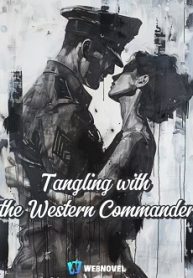Holy Roman Empire - Chapter 389
Chapter 389: Chapter 76: Continue Digging Holes
Belvedere Palace, where Franz was in high spirits and found everyone to his liking. The dust had settled from the American Civil War, which meant that Austria need not fear a threat from the United States for the next fifty years.
рlease,reading On ΒΟXΝOVEL.ϹʘM
Such a span of time was ample for him to manage the African Continent. Although it couldn’t compare with the Chosen Country in terms of natural conditions, it still had the foundation of a great power.
Compared to this long-term plan, the European strategy had become secondary. Franz didn’t believe he had the main character’s aura to unify the European Continent and rebuild the Roman Empire.
The Holy Roman Empire and the Roman Empire might differ by only two words, but in reality, they were worlds apart.
Since the failure of Emperor Napoleon, the nations of Europe had given up the idea of unifying the European Continent, not even the headstrong Tsarist Government dared such thoughts.
Even if it were possible to unify Europe, Franz wouldn’t do it. It was a pitfall that could bury any empire. He couldn’t dig his own grave just for a moment of glory.
Africa was not the best choice, but it was the most suitable choice for Austria. If possible, Franz wouldn’t mind having a go at South America.
(vitag.Init = window.vitag.Init || []).push(function(){viAPItag.display(“vi_765923973”)})
The reason was simple, South America’s natural environment was superior, their resources were abundant and easy to exploit, there were no great powers, and the land was vast with a sparse population.
The land of 17.84 million square kilometers was inhabited by a mere twenty-plus million people, most of whom were Indians.
If Spain could revive itself, then South America would be a land bestowed by heaven to them.
Most of the nations in South America had only gained independence from Spanish colonies a few decades ago, and the Protecting the King faction hadn’t disappeared; they could completely reverse the situation.
Franz knew this, but he had no intention of sharing his thoughts. The Spaniards were too busy fighting amongst themselves to consider such plans. By the time their internal conflicts ended, Spain would lack the strength to reassert itself in South America.
The fact that the Spaniards couldn’t achieve this didn’t mean other countries couldn’t.
There was no need to mention the British, they had too many colonies. If they wanted to really focus on development, North America was their best option.
The period of the Civil War was the best time for them to make a move, using Canada as a base to take over the West Coast region of the United States.
Without a doubt, the proud British were still basking in the glory of the Victorian Era. Apart from worrying about the balance of power in Europe being disrupted, they lacked substantial strategic plans.
What Franz truly dreaded were the French, for France under the Napoleon III Era was not the subsequent Republic living off past glories.
Perhaps many would think that enticing France to go to South America would benefit Austria’s advance in Africa. In fact, the exact opposite was true—it meant that Franz’s plans for Africa would be exposed ahead of time.
The nations of Europe were not fools; they certainly wouldn’t watch a colossal power rise without doing anything. Once the hidden strategy was exposed, the European countries would start pulling at Austria’s heels, and the plan naturally would be impossible to carry out.
(vitag.Init = window.vitag.Init || []).push(function(){viAPItag.display(“vi_765923973”)})
Keeping it a secret forever was impossible, but the longer Austria could delay, the stronger its position on the Continent would be. If Austro-Africa had tens of millions of inhabitants, even if the strategy was exposed, the other countries would be powerless.
Eliminating threats was important, but the cost also had to be considered. Didn’t the rise of the United States in history go unnoticed by European countries?
But what could they do upon noticing it? Without a threat to everyone’s core interests, who would wage a war at all costs?
War required costs, something the Tsarist Government knew all too well. First came the wars in the Near East, then the Prusso-Russo War, and the European hegemon was almost dragged down.
Did the British really make a strategic blunder by not intervening in the American Civil War? Perhaps not entirely so. After the failure to form an intervening Allied Forces, many in the London Government feared getting mired in the quagmire of war once more.
In this timeline, if Austria had not exerted its influence and intervened in the American Civil War from the very beginning, causing both parties to sustain heavy losses; and used tied interests to prevent the British from disembarking, then the London Government might have hesitated when it came to armed intervention.
The financial resources of any country are not unlimited. Franz could clearly sense that ever since the suppression of the Indian Rebellion, the British had slowed down their colonial endeavors overseas.
Or it could be said that after the end of the Crimean War, the pace of British colonial expansion had slowed down. The French colonial activities on the African Continent had fallen behind Austria, and this was also directly linked to the Crimean War.
Money doesn’t grow on trees, and the wealth in the financial circles of England and France does not equate to government funds.
Perhaps in times of war, they could gather more resources, but in peacetime, the government’s fiscal revenue was finite.
Money spent in war meant cuts had to be made elsewhere.
And overseas colonization was an industry that required a large capital investment, which inevitably would be affected when the government reduced its expenses.
(vitag.Init = window.vitag.Init || []).push(function(){viAPItag.display(“vi_765923973”)})
One cannot endlessly borrow money for colonization, after all! Borrowed money has to be repaid. In this era, currency was tied to gold and silver, and hardly experienced any devaluation, so repaying debts was not so easy.
Therefore, Franz decided to dig a few more traps to deplete the financial strength of England and France, to prevent them from being too active.
Just like the Russians, they settled down for ten years after the Crimean War; just as they were regaining a bit of vitality, they faced the Polish uprising and the Prusso-Russian War.
Nothing more needs to be said, that for the next twenty years the Tsarist Government should be very quiet. During this period, even if they wanted to fight, it would be very difficult for them to gather the funds for war.
Franz, pointing to the top-secret documents on the table, commanded, “Tyren, proceed with the deployment according to the plans outlined here.”
After picking up the documents and briefly scanning their contents, Tyren replied expressionlessly, “Yes, Your Majesty.”
This was his greatest strength; he never questioned orders. Whatever Franz commanded, he would execute it without delay.
The current Intelligence organization was no longer the loose organization it had been. It now consisted of three parts, each one a data statistics studio, operating under the National Security Bureau, but they were only responsible to Franz.
The First Data Statistics Studio, an overt intelligence organization composed of a nobility network, mainly collected lower-level confidential information and occasionally guided public opinion.
This was meant to attract attention from the outside world openly, mainly relying on the cooperation of local nobles. They investigated common issues and occasionally eradicated members of the Revolutionary Party.
The latter two studios were the core of the Intelligence organization. Their business was very broad, including: collecting internal and external intelligence, assassinations, fabricating incidents…
The second studio focused on domestic intelligence, while the third focused on overseas intelligence. Both studios had an equally wide range of responsibilities and severe overlaps in authority, which also meant they monitored each other.
(vitag.Init = window.vitag.Init || []).push(function(){viAPItag.display(“vi_765923973”)})
Tyren, as the head of intelligence, primarily coordinated the relationships among the three studios and implemented Franz’s orders.
It was a practical necessity, as intelligence work required a high level of secrecy. Franz wouldn’t dare treat others as fools; if he directly liaised with the three studios, wouldn’t that reveal to everyone that these studios were independent intelligence organizations?
To reduce the visibility of the Intelligence organization’s presence, internal operations were limited to gathering intelligence. Even in special circumstances when action was necessary, it was carried out by individuals planted in government departments.
To the public eye, domestic law enforcement was carried out by the police, and the Intelligence organization never appeared in the public’s view.
The ordinary people had no idea that Franz held an Intelligence organization, and even the government’s top leadership was unaware of the internal structure of the Intelligence organization. Externally, all three studios appeared as a single entity.













